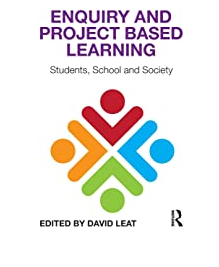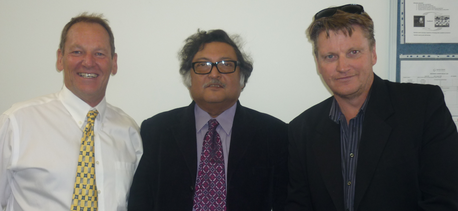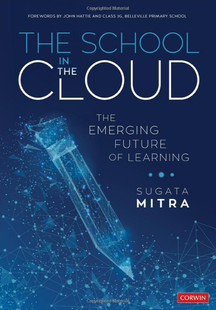PresenTations

Victorian Information Technology Teachers Association Conference - August 2011
Northern Metropolitan Region Principal's Conference - 2012
University of Newcastle U.K. - Centre for Teaching & Learning - 2012
Riverside International School - Prague 2012
International School of Prague - 2012
Teaching Association, International Thinking Conference - Riga 2012
St Aidens Primary School - Gateshead Newcastle upon Tyne - U.K. 2012
George Stephenson High School - Southgate, Killingworth, Newcastle upon Tyne -U.K. 2012
Victorian Principal's Association - 2012
South Western Sydney Region - Inquiry Learning Through S.O.L.E. conference - 2013 Keynote and conference facilitation, including classroom demonstrations of the process
Edutech Conference - Brisbane - 2014 - S.O.L.E. & Cloud technology in schools
South Western Sydney Region - Led a two day Inquiry Learning Through S.O.L.E. conference.
Intake 1- August 2013
Intake 2 - March 2014
Northern Metropolitan Region - Professional Learning Day - April 2013 - Co-presenting with Professor Sugata Mitra - The Future of Learning & taking S.O.L.E. mainstream
Hawkes Bay Principals Association Conference - New Zealand - August 2013
High Performing Principal's Award - 2011-2013 Curriculum Innovation
Victorian Principal's Association - Enhancing eLearning in our schools award - Innovative use of I.C.T. - 2013
Keynote - IngleburniPEN Teaching practices Network of schools, Sydney - April 2015
John Fawkner Secondary College - May 2015
Avondale Primary School - May 2015
Contributing authors - "Enquiry & project Based Learning - Students, School & Society" - Edited by Professor David Leat - 2017
B.B.A.M. network of secondary schools N.S.W. (Ballina Coast High School, Alstonville High School, Byron Bay Secondary College and Mullumbimby High School.) “Thinking to Learn, Learning to Think - heart, mind and S.O.L.E.” - April 2019
contribution to published books

Enquiry and Project Based Learning - Edited by Professor David Leat,
University of Newcastle U.K.
Many teachers, schools, parents and community organizations feel that a one dimensional standards focus approach to education is not serving us well. At times it has proved ineffective at preparing many students for work, higher education and general wellbeing, nor does it keep students engaged and intrinsically motivated, capable of sustaining interest in education and learning. There is a suppressed, but growing desire to transform educational pedagogy and outcomes. Enquiry based learning (EBL) and project based learning (PBL) are the prime candidates for achieving such a goal.
EBL is education that is driven by curiosity, questions and problem solving, with the capacity to produce results that are equal to or better than standard outcomes. This new text provides a critical examination of EBL and PBL by exploring a wide range of international exemplars and considering the benefits, barriers and contradictions generated by the efforts of teachers and schools. Focusing on analytical frameworks and socio cultural theory, areas covered include:
- enquiry and society
- what EPBL is
- learning through enquiry
- challenges for schools and teachers
- student outcomes and assessment
- teacher learning
- curriculum development
In Chapter 5 we write about our journey in establishing Self Organized Learning Environments in Australia.
The School in the Cloud - the emerging future of learning - Professor Sugata Mitra, University of Newcastle U.K.
References
Sugata Mitra is one of the most original voices in education today. His unique research with children and technology around the world casts a fascinating light on the core dynamics of learning - and teaching. Children love to learn: they don't all do well in education. Why not? In school they're usually obliged to compete with each other: what if they collaborate instead? They're typically taught by age: what happens when they're not? What if there's no teacher at all? And what does all of this mean for the future of education in an increasingly connected and febrile world? A bold, provocative and important book for anyone with a serious interest in learning, technology and schools.
--Sir Ken Robinson, PhD
Sugata Mitra is the standard-bearer for a genuinely 21st century education: one that connects children's innate thirst and capacity for learning with the massive resource of the internet - and then gets out of the way and lets them run free and grow their minds in the process. Read this book and let your sense of what it is possible for children to do, and become, be expanded beyond your wildest dreams. And join Sugata's crusading army of angels - for his radical yet practical ideas are opposed by many who have done well by systematically underestimating children's capabilities.
--Guy Claxton
The Internet provides a seemingly endless resource beyond just consumption. Leveraging years of research Sugata Mitra provides a compelling narrative on how it can empower kids to learn in ways we never imagined. The wisdom and strategies he shares serve as a blueprint to transform education now and in the future.
--Eric Sheninger
For many years Sugatra Mitra has been one of very few saying, and evidencing, that we should properly trust children with their learning. Children saw right away that they needed to know about the past to imagine and then build their futures. So of course they know how important it is to practice imagining. Children don't need this book; this book is for everyone else.
--Stephen Heppell, Felipe Segovia Chair in Learning Innovation at Universidad Camilo José Cela
Sugata Mitra is one of the most original voices in education today. His unique research with children and technology around the world casts a fascinating light on the core dynamics of learning - and teaching. Children love to learn: they don't all do well in education. Why not? In school they're usually obliged to compete with each other: what if they collaborate instead? They're typically taught by age: what happens when they're not? What if there's no teacher at all? And what does all of this mean for the future of education in an increasingly connected and febrile world? A bold, provocative and important book for anyone with a serious interest in learning, technology and schools.
--Sir Ken Robinson, PhD
Sugata Mitra is the standard-bearer for a genuinely 21st century education: one that connects children's innate thirst and capacity for learning with the massive resource of the internet - and then gets out of the way and lets them run free and grow their minds in the process. Read this book and let your sense of what it is possible for children to do, and become, be expanded beyond your wildest dreams. And join Sugata's crusading army of angels - for his radical yet practical ideas are opposed by many who have done well by systematically underestimating children's capabilities.
--Guy Claxton
The Internet provides a seemingly endless resource beyond just consumption. Leveraging years of research Sugata Mitra provides a compelling narrative on how it can empower kids to learn in ways we never imagined. The wisdom and strategies he shares serve as a blueprint to transform education now and in the future.
--Eric Sheninger
For many years Sugatra Mitra has been one of very few saying, and evidencing, that we should properly trust children with their learning. Children saw right away that they needed to know about the past to imagine and then build their futures. So of course they know how important it is to practice imagining. Children don't need this book; this book is for everyone else.
--Stephen Heppell, Felipe Segovia Chair in Learning Innovation at Universidad Camilo José Cela
partnering organizations

S.O.L.E. Central - Newcastle
The University of Newcastle - (United Kingdom)
South West Sydney Region - Glenfield Region
C.L.E.F. - (U.K.) Centre for Learning
The University of Newcastle - (United Kingdom)
South West Sydney Region - Glenfield Region
C.L.E.F. - (U.K.) Centre for Learning

